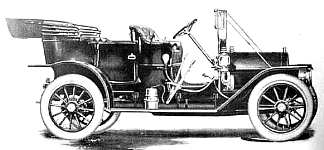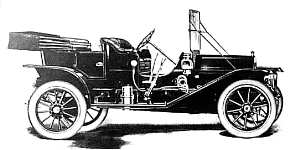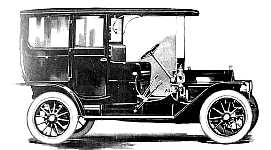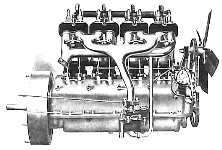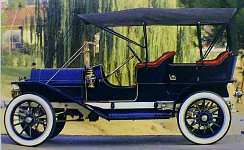This year's product catalog repeated the themes of 1909; the Cadillac had established a new standard in automobile values and inaugurated a new criterion by which all motors would henceforth be judged. The Cadillac "Thirty" introduced late in the year 1908 equaled the most expensive cars in the world in design, mechanical construction, materials and fineness of workmanship. It surpassed many of them in numerous essential features.
The Cadillac "Thirty" was a thoroughly standardized car, meaning that every individual part was exactly like every other part of its kind. All parts were absolutely interchangeable. In the 1910 cars, no fewer than 112 parts were accurate to one thousandth of an inch, i.e. about half the thickness of a human hair. The company was prepared to furnish any buyer with an exact duplicate of any part of any car it ever built.
All body frames were made of ash; the touring car body was made of wood, the large panel of the demi-tonneau was aluminized sheet steel, as were the doors on that and the touring car.
A standard cost of $1600 FOB Detroit applied to all models except the exclusive limousine; the latter was priced at almost double that amount, i.e. $3000.
Some additional descriptions of these cars may be found in The (New) Cadillac Database© section giving full specifications and descriptions of the Cadillacs of 1905-1912.
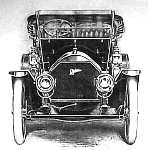
Front clip of the 1910 models
The 1910
Model Range
|
|
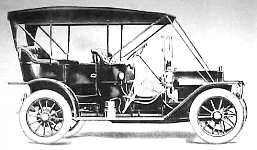 The touring car with top1 in place |
|
|
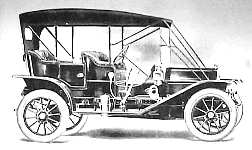 The demi-tonneau with top in place |
|
|
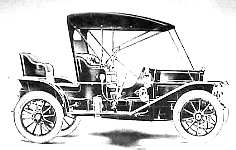 The rumble-seat roadster with top in place |
|
|
|
|
|
|
1 Cadillac made its own tops; these were available for all open models; they were made of rubber (cheaper) or mohair (more expensive). The rubber top for the touring car and demi-tonneau cost $75 compared to $95 for mohair. For the roadster models, rubber cost $55 while mohair was $70; all tops came with side curtains and a storm front; if cars were ordered with a windshield the top came with a special curtain to fill the gap between the canopy and the top of the windshield; curtains were lighted with a transparent material (a kind of Plexiglas)
2 The French words "demi tonneau" mean "half a barrel"; in other words, the rear seating area is likened to a large vat or barrel that has been cut in half, the top part removed and the lower "half" fitted with seats
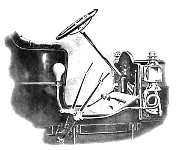
The driving position
Other Details of Construction
The chassis of the 1910 models; the limousine had a longer wheel base |
|
|
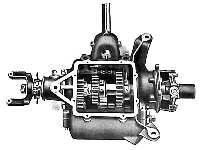 The reliable transmission |
